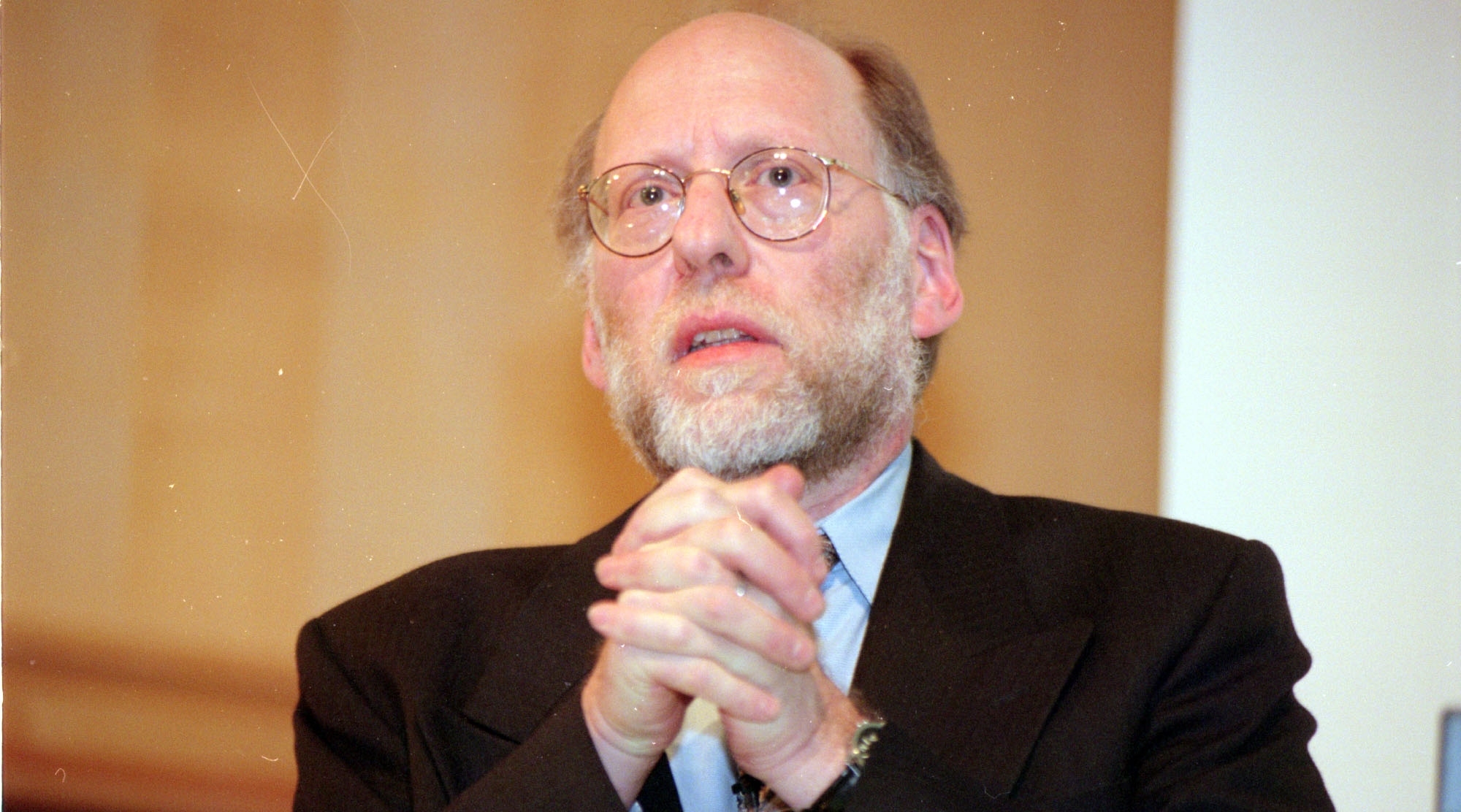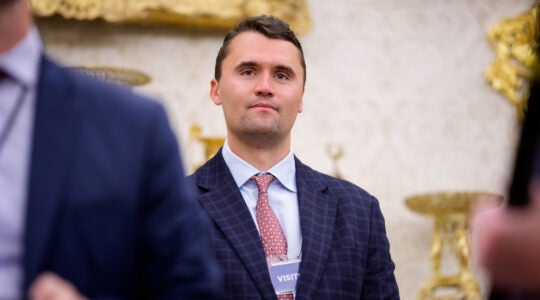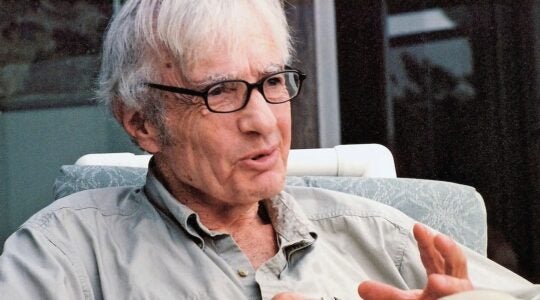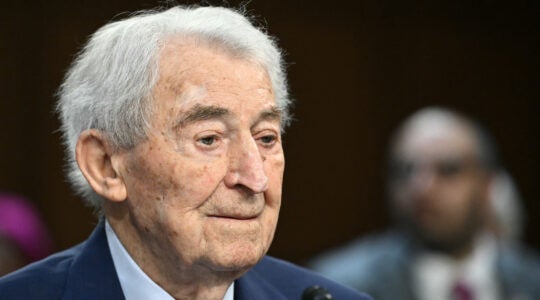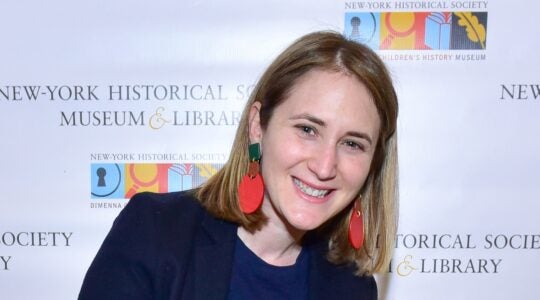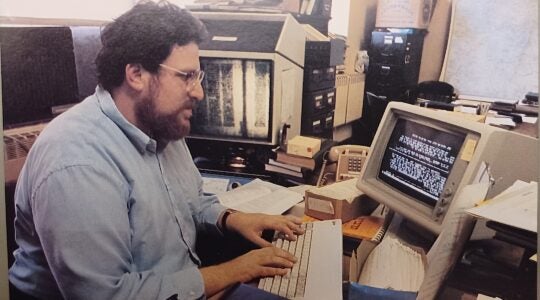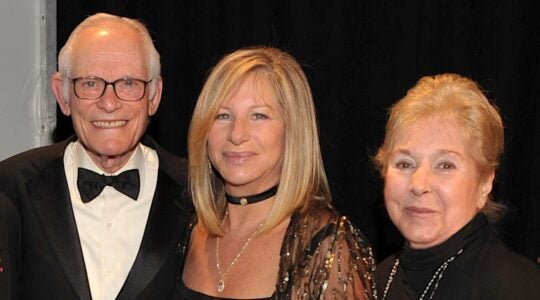(JTA) — Todd Gitlin became the archetype of the 1960s radical not just by leading protests against the Vietnam War and apartheid, but by questioning the movements he helped found.
The prophet-in-his-own-land persona Gitlin fashioned for himself, alienating to a degree his cohort from his campus days, extended to his Jewish profile. He rebuked fellow leftists for their bids to make Israel a pariah, while remaining a fierce critic of Israel’s occupation.
Gitlin died Saturday in Pittsfield, Massachusetts, at age 79. He had been hospitalized in December after a massive heart attack and had suffered renal failure.
Gitlin was just 20 in 1963 when he served as president of Students for a Democratic Society, the group that would throughout the rest of the decade spearhead student protests against the Vietnam War and South African apartheid and for civil rights at home.
At that age, Gitlin, born and raised in New York City, had already graduated from Harvard and was getting his master’s degree in political science from the University of Michigan; he went on to get a doctorate from the University of California, Berkeley. When he died, he was a professor at Columbia University.
He once said he did not plan a career outside of radicalism, but he settled into a chronicler of a time that had shaped his country. His best-known work, “The Sixties: Years of Hope, Days of Rage,” was published in 1987, but it was a line in another book published in 1995, “The Twilight of Common Dreams: Why America Is Wracked by Culture War” that best came to define him: “While the right has been busy taking the White House, the left has been marching on the English department.”
His point was that the left had become obsessed with identity and was not focused enough on the inequities that had underscored the dreams of revolution in the 1960s.
“His legacy was that you could do research in a way that was not an ivory tower, you could help people understand the power and structure of the country you were living in and do something about it,” said Rabbi Arthur Waskow, the founder of the Shalom Center in Philadelphia, who had known Gitlin since their days in Students for Democratic Society.
Gitlin cast a jaundiced eye on the media, arguing that it bound Americans to the illusions a corporate state foisted upon them. “Ozzie and Harriet is a lie,” he said of the 1950s TV show that became a template for situation comedy. In the same 1989 interview with the New York Times, he recalled sitting in a theater cringing watching “The Big Chill,” the hit 1983 movie that commodified and sanitized the experience of his generation, while everyone around him loved it.
The corrosive effects of the media culminated for him in the election to the presidency of a reality TV star, and he found himself joining in what might have once been unthinkable alliances in seeking to undo the legacy of Donald Trump.
Gitlin joined an Anti-Defamation League task force in 2016 to examine the death threats endured by journalists who covered Trump’s election that year. Last year he and Bill Kristol, a Republican who soured on Trump but remains conservative in his outlook, spearheaded an open letter by liberals and conservatives warning of the threat Trump continued to pose to democracy.
“Todd was a witty, kind and shrewd co-conspirator,” Kristol said on Twitter.
Waskow said Gitlin’s allergy to identity politics extended to the Freedom Seder Waskow wrote after the 1968 assassination of Martin Luther King Jr. and debuted at a civil rights seder in 1969 — a seder that has become a symbol in the Jewish social justice movement.
“He misunderstood it,” Waskow said. “He thought it would contribute to distracting people from the big picture of what needed to be changed in American society. He thought it was a way of drawing people into concern with their Jewishness to the detriment of their concern with what he saw as major American issues, structural issues in American society.”
Yet Gitlin found himself drawn to his Jewish identity, particularly as it was expressed through an affinity for Israel.
At a symposium organized in 2011 by the magazine Dissent, he vividly depicted how conflicted he was about the Jewish state.
“In the world I was born into, Israel was an emotion wrapped in an idea,” Gitlin said. “Simply by existing, the Jewish state was a portal to deliverance, and since I had been carried through that portal at birth, so to speak, a sense of deliverance was my default emotion.”
Describing an upbringing in which singing “Hatikvah,” the Israeli national anthem, was “far more vivid and rapturous” than “The Star-Spangled Banner,” he said he remained emotionally invested in Israel.
“In 1973, news that Egyptian forces had crossed the Suez Canal sent me in tears to a San Francisco shul I had never set foot in before, knowing acutely, desperately, that if the state of Israel was going to be destroyed, I wanted to receive the news among Jews,” he said. “In 1975, driving in San Francisco, when I heard on the radio about the U.N. General Assembly passing the infamous ‘Zionism = racism’ resolution, written in Orwellian duckspeak, I swore out loud my revulsion that in a world of nations, all of which are founded on mythic ideas with various downsides, one, in particular, should have been singled out for condemnation. I puffed myself up to declare that Israel wasn’t going to be destroyed: Over my dead body.”
The very affinity he felt for Israel made him despair when, he said, it was terrorizing Palestinian civilians.
“Today, the state of Israel feels to me like a personal trauma, a huge, heartbreaking disappointment, a world-historical opportunity forgone, a danger to the Jews, a burden — and also a nation to which, like it or not, I am fastened, where people I love and admire carry on an immensely, grievously difficult struggle for decency against tall odds.”
For the next decade, Gitlin inhabited a space between damning Israel’s occupation and defending its existence: In 2014, he joined a collective call condemning boycotts of Israeli academics; in 2016 he joined a collective call for boycotts of settlement goods.
Gitlin was a gregarious writer, enveloping his targets in affection even as he lacerated what he believed were their lapses of critical thinking. In November, he took to The Forward to blast Sally Rooney, the millennial Irish novelist who would not allow her work to be published in Israel.
“No contemporary writer has gotten under my skin as you have,” he began, saying he was “astonished” by her facility for dialogue and for making vivid “the damages of class.”
He said as appalled as he was by Israel’s occupation, he could not support her boycott. “The freedom of literature is the enemy of the locked-up mind,” he wrote. “Your own work is a splendid tribute to the spirit that strives to think its way out of prisons and gropes its way toward a more beautiful world.”
He was appalled, his friend Jo-Ann Mort said, at likening Israel’s practices to South African Apartheid, as someone who had led protests against the system of racial segregation in the 1960s.
“He said there are two competing rights” to the land in the Israeli-Palestinian conflict, “so BDS doesn’t make any sense,” Mort said in an interview, referring to the movement to boycott, divest from and sanction Israel.
Mort, a communications adviser to an array of groups and movements on the left, paid tribute to Gitlin in a Facebook post, writing, “In my little world of left-wing Zionism he was an important voice of steadfastness and honesty.”
Mort said in the interview that Gitlin would be sorely missed among those on the American left who are attached to Israel.
“The loss is real, in terms of someone who had that stature as a public intellectual, there are not a lot of people left like that,” she said.
Gitlin is survived by his third wife, Laurel Ann Cook; a sister, Judy Gitlin; and three stepchildren.
JTA has documented Jewish history in real-time for over a century. Keep our journalism strong by joining us in supporting independent, award-winning reporting.
